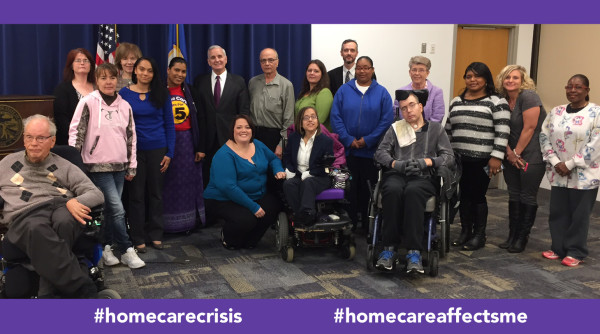

Share
Home care workers voted overwhelmingly to ratify the contract their bargaining team of both workers and clients who rely on home care services negotiated with the State of Minnesota.
The mail ballots were counted Thursday night, with over 93 percent of votes cast in favor of the contract, which includes a $2-an-hour increase in the wage floor, new training opportunities to improve the quality of care clients receive and other steps forward for a group of workers that voted to unionize in 2014.
The contract covers appx. 27,000 who provide in-home health care to people who are elderly or have disabilities. They are represented by SEIU Healthcare Minnesota.
Now that the workers have ratified the contract, it will go to the Legislature for ratification. The final step would be having it signed by Governor Dayton.
Home care worker Dawn Burnfin from Chisholm released the following statement after the votes were counted:
“Home care workers, and the seniors and people with disabilities we care for, know our state is facing a care crisis. The low wages and lack of benefits have meant Minnesota families have not been able to receive the care they deserve. Our contract, which increases wages and paid time off, gives PCAs time and half on two holidays a year, and makes real investments in training, will be a huge step in improving the lives of tens of thousands of Minnesota families, in every town small and large across the state by not only making sure that PCAs aren’t having to choose between coming to work sick or not being able to support their family. It also shows that we appreciate the sacrifices they make and legitimizes the PCA profession.
“We know that legislators in both parties understand the need to care for vulnerable seniors and the disabled. That is why two years ago our contract had a strong set of authors from both parties. We look forward to talking to our Senators and Representatives to make sure they understand the vital importance of passing this contract, so that we can take a crucial step towards finally addressing the care crisis for seniors and people with disabilities in Minnesota.”

